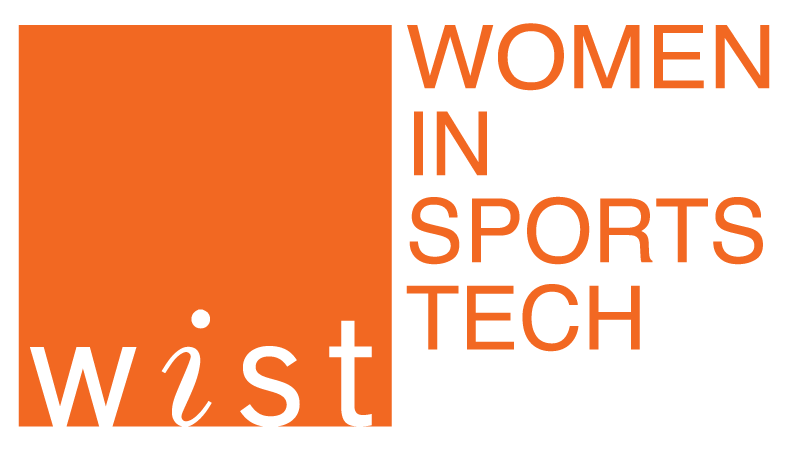“What We Wish We Knew” – WiST/Nike hosted panel at Hashtag in NYC
Featuring panelists Elizabeth O’Brien of IBM Sports, Carola Jain of Spartan, and Jarvis Sam of Nike, moderated by WiST Founder Marilou McFarlane
At the Hashtag Sports Conference in NYC on June 26, Women in Sports Tech, together with NIKE, hosted a panel featuring WiST Board and Advisory Members who shared their journeys navigating the world of sports, technology and innovation. Addressing the Next Gen conference attendees–a room packed with young sports and tech professionals–the broad discussion touched upon sponsorship, events, marketing and human capital. Marilou McFarlane, SportsTechWorks and founder/board co-chair of WiST, moderated an illustrious panel including Jarvis Sam, Senior Director of Diversity and Talent Recruitment at NIKE; Elizabeth O’Brien, Program Director Worldwide Sports and Entertainment at IBM Sports; and Carola Jain, CMO of Spartan.
This was no ordinary panel. The questions, answers and dialogue were honest, thoughtful and most importantly, transparent. WiST has assembled a board of women and men who sincerely believe in changing the ratio: accelerating inclusion and diversity across sports and technology. Their individual and collective passion was on display at this event held at the Westin Hotel in Times Square.
Shout out to other WiST team members in attendance including WiST co-founder Nina Luker and WiST advisors Alysse Soll and Patty Hubbard. We were also delighted to see Nataliya Bredikhina, one of four 2019 WiST Fellows, who was awarded a $5,000 grant to intern as a data scientist at Turnkey Intelligence this summer.
We’ve highlighted some of our favorite panel takeaways, right turns, wrong turns, aha and OMG moments. We hope you will check out the event video to find your personal highlights.
OUR TAKEAWAYS
What We Wish We Knew
Marilou opened the discussion with the question we all ask ourselves about our careers: how did we get here? Success is not a straight line up as we know, so Marilou asked about panelist journeys, including the highs and lows.
While everyone shared their personal journey both in and out of sports, it pretty much boiled down to “being the right person, with the right skill sets, in the right place, at the right time.” Call it “facilitated serendipity.”
The Importance of Building Your Personal Brand
Building your personal brand using digital and social tools is essential these days. But doing it right is key. Should it be organic or deliberate? For this panel, LinkedIn is a direct route to discovery. As well, social tools especially Instagram, Twitter, and being an influencer in a niche area can tip the scales in your favor. Bottom line: be authentic and put yourself out there.
The Right Mentors and Sponsors Are Key
Hands down, engaging with a mentor (typically someone senior to you who can help advance your progression) or a sponsor (the decision maker in a high-level position) can be critical to your success in today’s professional landscape. The consensus here: reach out to someone you wish to guide you and, in return, offer them your willingness to learn. The mentor / mentee relationship is a powerful foundation that builds trust which engenders long term growth and success for all involved.
Breaking in as a Minority
Bottom line, don’t be afraid to engage! Fact: over 60% of company hiring comes from direct employee referrals. Don’t know an employee? Use LinkedIn to reach out to someone either inside or outside of your network who can directly connect you with an opportunity to increase your chances of getting a toe in. Other methods? Connect with like-minded online communities to expand your network. Get yourself an unpaid internship to show demonstrated interest and passion. Build new relationships by volunteering in the community where you get to know people as humans and not just as conduit to your next job.
Overcoming Imposter Syndrome aka Fake It ‘Til You Make It
How do you project confidence in your ability when you don’t know what you don’t know? What did every panelist have in common on this one? No one knows everything, ever.The most successful teams are those who engage people with deep competencies across a variety of skill sets that integrate under a common umbrella.
Be honest about what you know and don’t know. Invest in learning what you don’t know so you can bring a broader understanding to a team. Understand the difference between learning and experiencing, since you will need both to succeed.
Corporate Culture vs. Climate
Good companies invest heavily in a corporate culture that embraces all employees. When those very employees are put in a tough situation (bad boss, toxic teams, high performers dragged down by lower performers), it causes real tumult.
What do the panelists think? It really comes down to your personal tolerance level. If you love your company, are learning and growing, find a way to get into a position or department that better suits you. Chances are the bad bosses, toxic teammates and underperformers will be replaced, paving the way for you to perform at your best. Try not to jump ship too quickly, as climates can often change quickly. However, if you feel you are physically or psychologically unsafe, report it to HR and see if things change. If they do not, you should move on.
Be an advocate for the company. If you are in the midst of a storm, one of the best ways forward is to provide a roadmap for a solution to a challenge that works not just for you, but for the team and the company.
View our video recap here.


